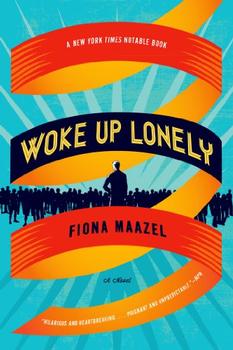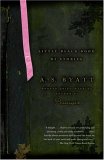Summary | Excerpt | Reviews | Beyond the book | Read-Alikes | Genres & Themes | Author Bio

Murakami's last book of short stories to be published in English was
After The Quake, a collection of
six stories relating to the Kobe earthquake (see sidebar). His new
collection is something quite different; instead of a small selection of short
stories relating to one event, he presents us with 25 stories written over 25
years from 1980 to 2005, many of which have previously been published in The New
Yorker, Granta and Harper's.
Although the stories are not presented chronologically, a clear progression in his writing style can be seen - from the early stories that are so surreal as to be almost indescribable, to his more
tangible recent stories. It's even possible to see differences between the
stories translated by Jay Rubin, as opposed to Philip Gabriel - apparently, the
two translators find themselves drawn to different aspects of Murakami's work,
so that Rubin translates most of Murakami's more fantastical tales (which one
reviewer felt were "at best clever, at worst gimmicky and aggravating"); whereas
Gabriel translates the more emotional (arguably more mature) stories, where
fantasy takes a back seat to character development.
As a general rule, it's advisable to spread the reading of most short story
collections over a number of days, but this is especially the case with this
collection where the characters tend to blur into each other after a few
stories. All Murakami's protagonists seem to be obsessed by the same things - they have
little or no interest in modern Japanese culture, let alone traditional Japanese
culture, but instead embrace everything Western; as one reviewer observes, "if
the protagonists in this collection were all assembled, they would discover a
series of typically Murakami-like freakish coincidences about themselves; not
only does one of them like Balzac, but they all do; they all prefer spaghetti to
sushi; they all find solace in Debussy, Dickens and Descartes."
If you're an aficionado of all things Murakami this is a collection you'll want
to read cover to cover, probably in chronological order so as to see how his writing
has changed over time. However, if you've enjoyed some of his earlier works but been a
little bemused by others (or this is the first time you've read anything by Murakami)
you'd be best to read strategically, skipping over the stories that don't
resonate, and leaving a reasonable amount of time between mouthfuls.
About The Author: Haruki Murakami was born in Kyoto in 1949 and graduated from the
Waseda University, Tokyo, in 1975. He wrote his first novel, Hear the Wind
Sing (1979, translated 1987) in his thirties, but his major breakthrough
came in 1987 with the publication of Norwegian Wood - a coming of age
story named after the Beatles' song, which differs from his other novels in that
it is written in a realistic style, whereas his other novels and many of his
short stories have strong fantasy elements.
He and his wife lived in Europe from 1986 to 1991, and in the USA from 1991 to 1995,
where he taught at Princeton. After the Kobe earthquake and the poison gas
attacks on the Tokyo subway in 1995* he returned to Tokyo to interview both attack victims and members of the religious cult Aum Shinrikyo, from which
he wrote two non-fiction books. These were edited and combined into one
English language volume, Underground (2000). Soon after, he
published After The Quake (2002), a collection of six stories relating to
the Kobe earthquake .... continued in sidebar.
![]() This review was originally published in The BookBrowse Review in September 2006, and has been updated for the
October 2007 edition.
Click here to go to this issue.
This review was originally published in The BookBrowse Review in September 2006, and has been updated for the
October 2007 edition.
Click here to go to this issue.

If you liked Blind Willow, Sleeping Woman, try these:

by Fiona Maazel
Published 2014
Woke Up Lonely is an original and deeply funny novel that explores our very human impulse to seek and repel intimacy with the people who matter to us most.

The Little Black Book of Stories
by A.S. Byatt
Published 2005
These unforgettable stories are by turns haunting, funny, sparkling, and scary. Byatt’s Little Black Book adds a deliciously dark note to her skill in mixing folk and fairy tales with everyday life.
In youth we run into difficulties. In old age difficulties run into us
Click Here to find out who said this, as well as discovering other famous literary quotes!
Your guide toexceptional books
BookBrowse seeks out and recommends the best in contemporary fiction and nonfiction—books that not only engage and entertain but also deepen our understanding of ourselves and the world around us.